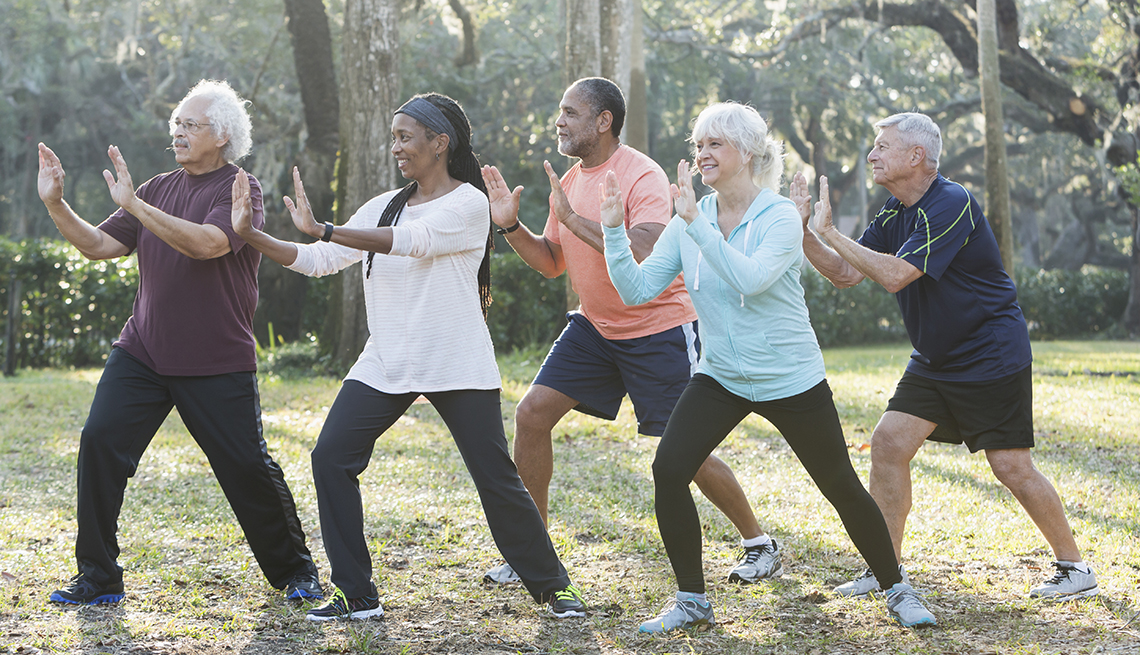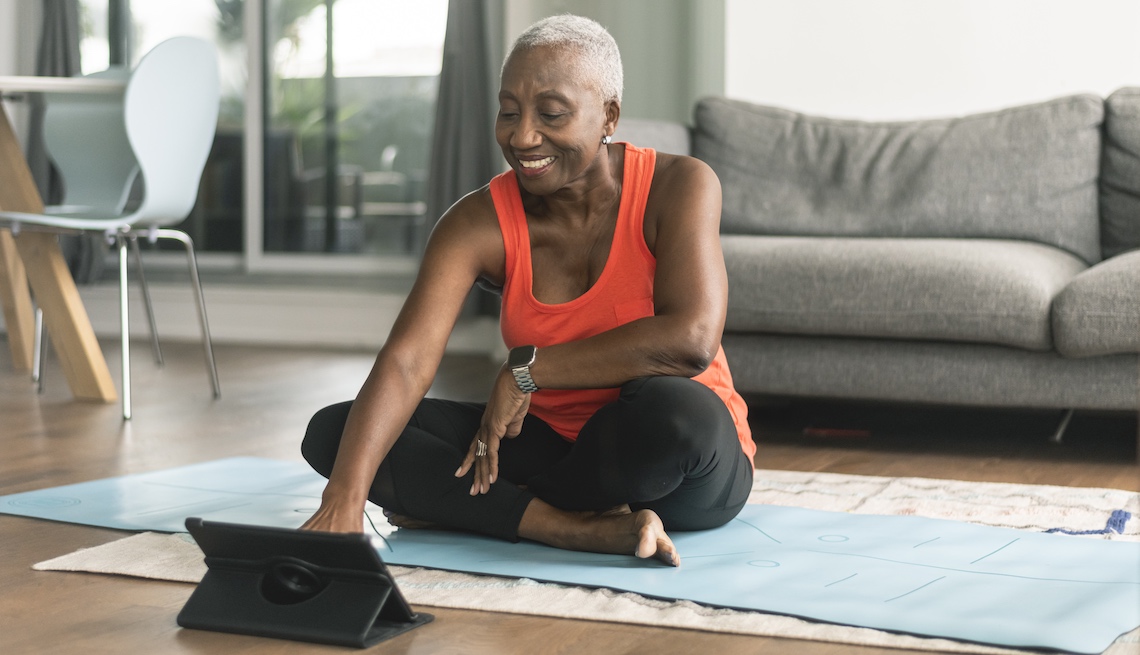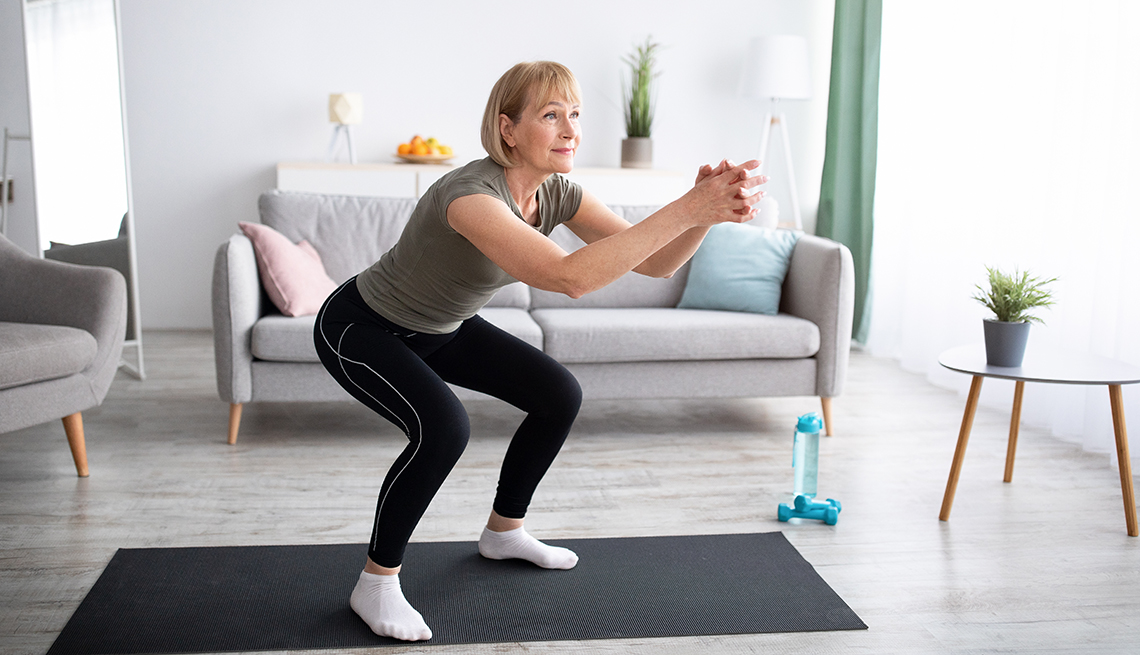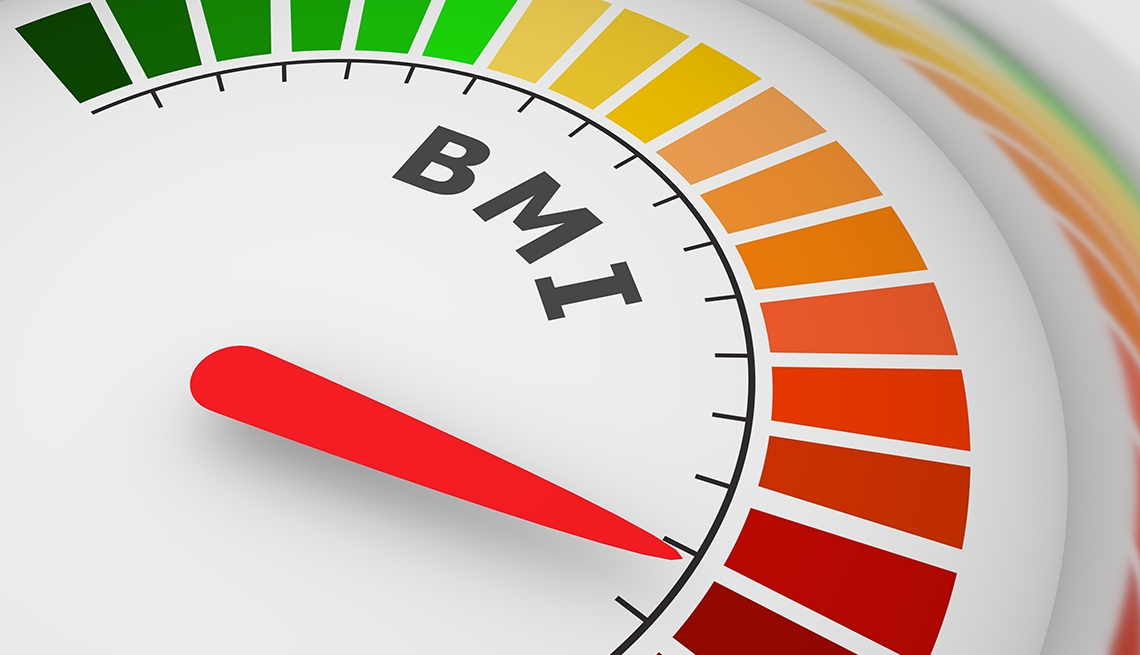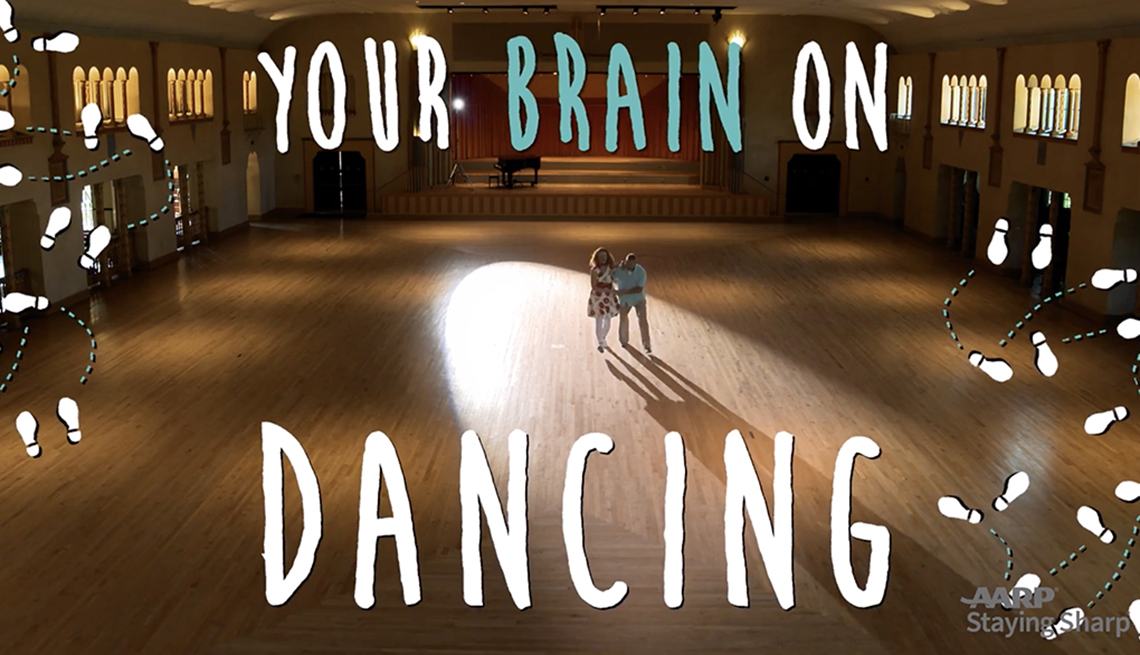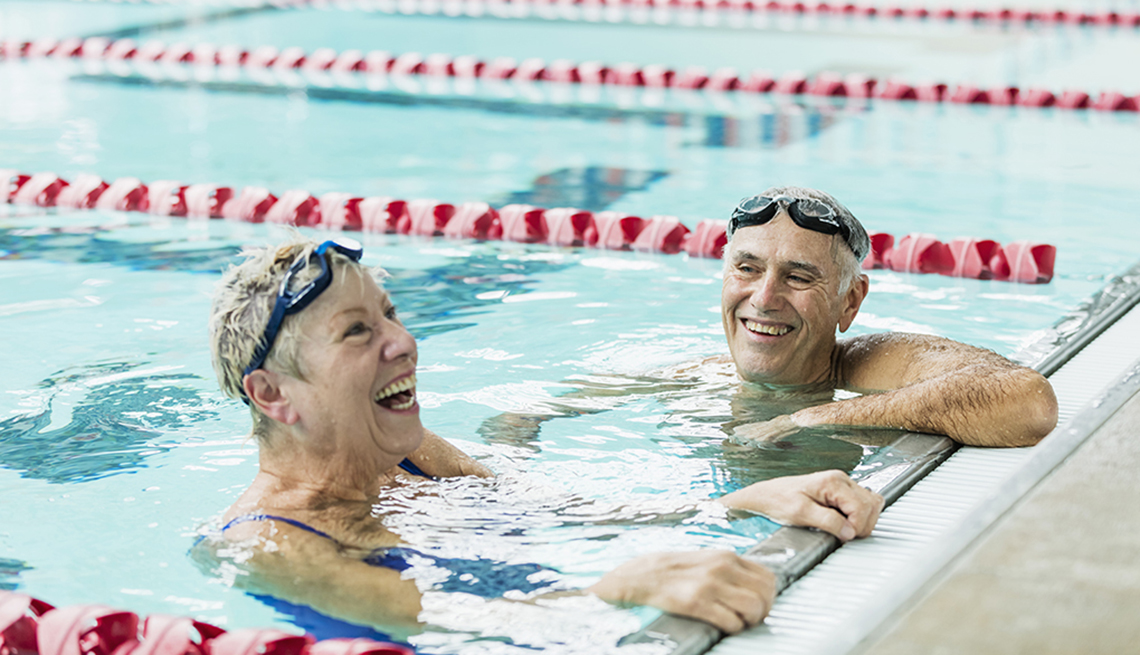Your Personalized Guide to Fitness
At AARP we know that staying fit is one of the pillars of healthy living, and we want to help guide you on your fitness journey. Click below to find our comprehensive fitness offerings. Enjoy your workout!
Fitness at Your Fingertips
10-Minute Upper Body Strength Workout
Learn new body weight exercises
10-Minute Lower Body Strength Workout
Foundational movement workout
20-Minute Cardio Workout (Beginner Level)
Improve your everyday life
Senior Planet Virtual Fitness and Wellness Classes
Anyone can take these free online fitness classes!
New Core Series With Denise Austin
10-Minute Retro Cardio
Get your heart pumping while strengthening your core
10-Minute Cardio Core
Help stabilize and strengthen your core
10-Minute Core Balance
Help lower the risk of backaches
10-Minute Standing Pilates
Strengthen all your major muscles
10-Minute Core Yoga
Relax and stretch sore muscles
If You Only Have 10 Minutes to Exercise
Balance and Toning Workout With Denise Austin
Firm muscles and improve balance
Standing Abs and Core Workout With Denise Austin
Strengthens muscles, improves posture
Full-Body Workout with April Hattori and Aiko Sokolowski
Improve balance and cardio and build muscle
Total-Body Workout With Bryant Johnson
All you need are hand weights or water bottles
Zumba Class With Lorraine Ladish
Learn this fun and easy dance routine
Simple Cardio Workout With Jorge Cruise
Guides you through a low-impact cardio workout
Morning Yoga With Expert Rolf Gates
A gentle series of poses to invigorate your morning
Balance-and-Energy Workout With Kathy Smith
All you need is a chair for this easy workout
Cardio
Denise & Katie Austin’s 6-Minute Indoor Cardio Workout
Keep up your commitment any rainy day
Beginner HIIT with April Hattori and Aiko Sokolowski
Exercises to improve blood pressure, reduce belly fat
Walking
Fat-Burning Indoor Walking Workout With Denise Austin
Try this 10-minute walking workout
Intro to Nordic Walking With Fitness Expert Kathy Smith
Nordic poles can help you get started walking
Strength
All-Day Strength Training With Denise Austin
Firm your muscles with easy strength workouts
Build Upper Body Strength With RBG's Fitness Trainer
Try upper body exercises that anyone can do
Lower-Body Strength Training Workout With Jorge Cruise
Build muscle and burn belly fat
Yoga
Beginner Yoga in Your 50s & 60s
It’s never too late to start your yoga practice
Beginner Yoga in Your 70s
Learn some of the basic poses
Beginner Barre Workout With Fitness Expert Kathy Smith
You can try these basic barre moves at home
Time to Unwind With Yoga Expert Rolf Gates
Ease into bedtime with this soothing routine
10-Minute Energizing Yoga Flow With Lorraine Ladish
A great way to start the day
More Core
10-Minute Core Strength Exercise With Jorge Cruise
Try this challenging core strength regimen
A Simple Core Workout With Fitness Expert Kathy Smith
Build strength and improve your overall fitness
Balance and Stretch
Stretching and Toning with Denise Austin
Start your day with a morning stretch routine
10-Minute Balance and Stretch Workout
Enjoy a guided combination workout
10-Minute Balance Workout With Bryant Johnson
All you need is a chair for this home workout
Your Workout Should Include the World's Best Stretch
Increase flexibility and reduce stress
Fitness: Tips & Tricks
Your Brain on Exercise – from Staying Sharp®
Add Cardio to Your Day for your Heart, Lungs and Brain
It may benefit your thinking skills and memory


